Women’s Day Special Corner
IIIT-B Celebrates International Women’s Day with Enthusiasm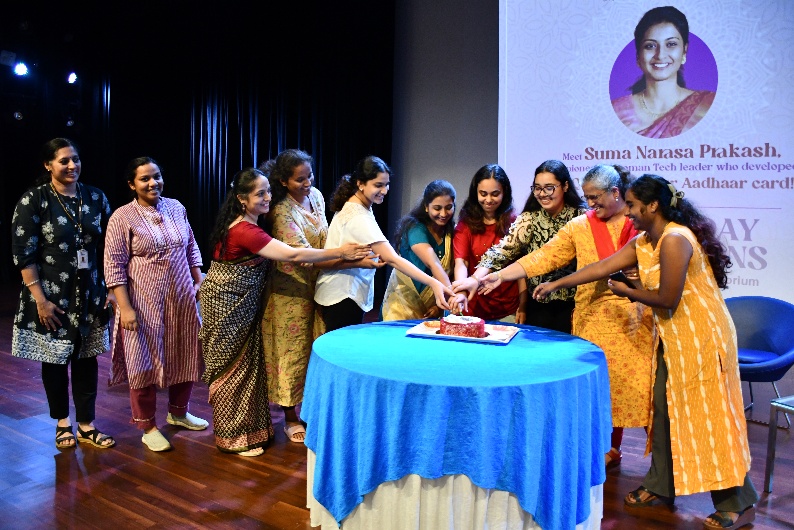
IIIT-B commemorated International Women’s Day on March 19th with great enthusiasm and warmth, celebrating the essence of womanhood. The event was honored by the presence of Ms. Suma Narasa Prakash as the Chief Guest. A pioneering woman in technology, who developed the QR code for Aadhaar cards.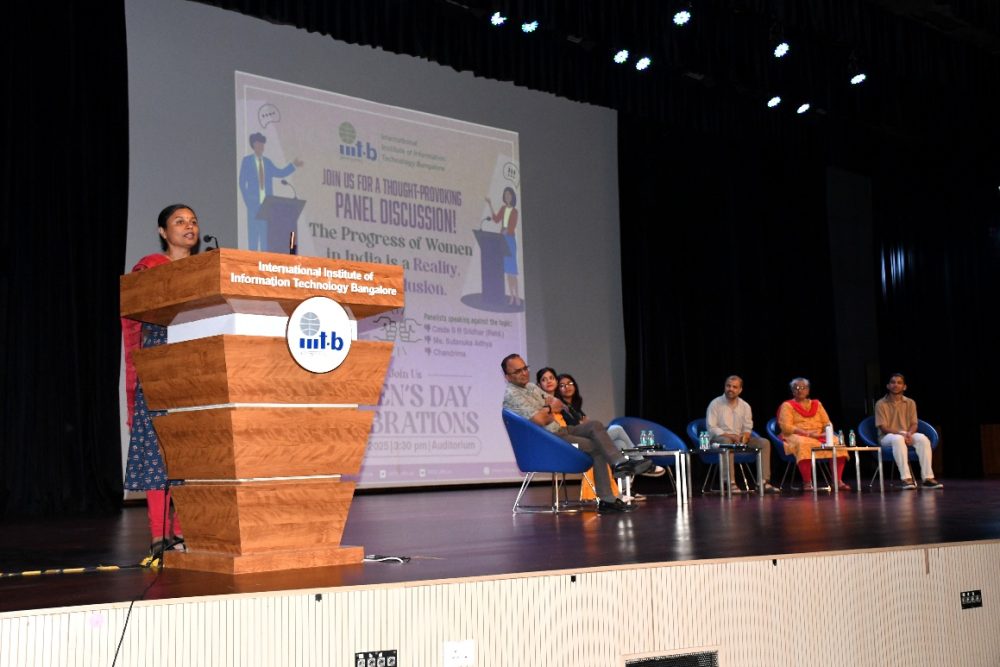
The celebration brought together faculty, staff, and students for a meaningful discussion on “The Progress of Women in India is a Reality, Not an Illusion” through a panel discussion. Ms. Suma delivered an inspiring speech, sharing her journey and insights on empowering women in tech. The event also featured a cake-cutting ceremony, a thought-provoking movie screening, and concluded with a delightful feast for all attendees.
In Conversation with Prof. Meenakshi D’Souza.
Prof. Meenakshi D’Souza, Head of the Department of Computer Science and Engineering at IIIT-B, holds a Master’s in Mathematics and a Ph.D. in Theoretical Computer Science. In this special women’s edition of Naviiina, we had the privilege of interviewing her. The conversation offers a compelling glimpse into her journey as a woman in STEM and how the landscape has evolved over the years.

- When you started your career, what were some of the biggest challenges you faced as a woman in STEM?
I started my career in the year 2003, working very briefly for a DRDO lab and then in the R&D division of Honeywell Technology Solutions, in Bangalore. One of the biggest challenges that I faced was the lack of women in the core R&D team. We had a few fresh graduates working as developers, but I was the only woman in the core team. My boss once remarked, “How I wish you weren’t there so that we can be freer!”. Another challenge was to cope with starting a family in the early stages of my career. Women’s biological clock ticks very fast and post-PhD, there is a lot of pressure to have children before one is deemed to be too old to have kids by Indian standards! Duration of maternity leave was 84 days then and I had to extend my leave to be with my children till they were about six months old. Returning to full-time work is a big challenge when one has already spent about 11 years completing a Bachelors’, a master’s and a Doctorate degree, without working!
- How has the teaching and learning experience for women students in STEM evolved over the years?
In these nearly 30 years, teaching and learning options have expanded significantly. There are now many more girls pursuing engineering degrees, along with other options within STEM, such as biological sciences, pharmaceutical sciences, physiotherapy, design, and more. Opportunities are increasingly available both in India and abroad, and parents are more willing to let their daughters pursue education away from home, even investing in education loans. Career options are abundant for those who excel in academia, and the general openness in society to let daughters leave home for higher education and work has been a positive shift.
- Do you think current educational policies and industry practices are doing enough to encourage women in STEM?
Definitely. There is now a supernumerary quota for girls in the IITs, NITs, IISc and IISERs. This is meant to increase the male:female ratio in India’s top engineering and science educational institutions and has already seem tremendous success. Many girls are now pursuing engineering education, including core engineering disciplines like mechanical and civil engineering. Central and many state governments have policies on free or concessional education for girls, discounted or free travel, scholarships etc. There is (extended) maternity leave of six months, government employees get child-care leave of two years, paternity leave etc. It is a lot better now.
- Your advice on how one should handle moments of gender-based discrimination or microaggressions at work?
My opinion on this is to ignore sweepingly negative remarks discriminating against women. I would like to stay focused on being optimistic, working hard and doing our best. Women are made strong and have been managing a large(r) share of household responsibilities and their careers, it is best to let this asset grow and pass on these values to our next generation. Any positive change that happens is most welcome but complaining just increases frustration.
Microaggressions are more subtle and not welcome at all. Unfortunately, they are more difficult to overcome and are becoming pervasive, even amidst women themselves. Here again, patience and working towards one’s goals will reap rewards.
- Are there any lesser-known women in STEM whose stories you think deserve more attention?
There are many of them! Not only in STEM but in many different fields. We had hosted a Wikipedia edit-a-thon event on International Women’s Day in the past, to create content on under-represented women in Wikipedia. There are books that deal with very successful women in STEM but not all. There is also the issue of women rising to leadership positions, it is still a dream. I choose to not list or mention any names explicitly. One of my future projects is to archive the contributions of women in Computer Science and IT research landscape in India, it is slowly taking wings and will soon be done.
- Looking back, is there any piece of advice you wish someone had given you early in your career?
Yes, very much. I wish someone had told me to ask for help, both at home, in caring for children and at work. Many aspects of finance, investments and sharing of income are also compromised by women, for example, it is considered totally fine to give the entire monthly income or a large share of it to the husband or the head of the family.
- What’s the one big compliment that your male colleagues gave you in recent times, that made you feel very proud.
It took me some time to think of an answer! I received a teaching excellence award in the institute in the year 2023, it made me very happy to feel recognized for my work. I recently received the ACM India Outstanding Contributions to Computing Education award, the first women faculty member to get this award. This is another recognition that makes me happy, a reward for all the many years of hard work that I have put into teaching.
ನಿನಗೆ ಬೇರೆ ಹೆಸರು ಬೇಕೆ…
 ಮಾರ್ಚ್ ೮ ರಂದು ವಿಶ್ವದಾದ್ಯಂತ ಮಹಿಳಾ ದಿನಾಚರಣೆಯನ್ನು ಆಚರಿಸ್ತಾರೆ. ಆದರೆ ಮಹಿಳೆಗೊಂದು ದಿನ ಬೇಕಾ? ಪ್ರತಿದಿನ ಆಕೆಯ ಆಚರಣೆ ಯಾಕೆ ಆಗಬಾರದು? ಈ ಪ್ರಶ್ನೆಯೊಂದಿಗೆ ಈ ಲೇಖನ ಆರಂಭಿಸೋಣ.
ಮಾರ್ಚ್ ೮ ರಂದು ವಿಶ್ವದಾದ್ಯಂತ ಮಹಿಳಾ ದಿನಾಚರಣೆಯನ್ನು ಆಚರಿಸ್ತಾರೆ. ಆದರೆ ಮಹಿಳೆಗೊಂದು ದಿನ ಬೇಕಾ? ಪ್ರತಿದಿನ ಆಕೆಯ ಆಚರಣೆ ಯಾಕೆ ಆಗಬಾರದು? ಈ ಪ್ರಶ್ನೆಯೊಂದಿಗೆ ಈ ಲೇಖನ ಆರಂಭಿಸೋಣ.
ಪ್ರತಿದಿನ ಮಹಿಳೆಯ ದಿನ ಅಂದರೆ ಏನು? ದಿನನಿತ್ಯ ಸ್ತ್ರೀ ಕುಲಕ್ಕೆ ಶುಭ ಕೋರಬೇಕಾ? ಈ ರೀತಿಯ ಪ್ರಶ್ನೆ ಮೂಡೋದು ಸಹಜ. ಆದರೆ ಮಹಿಳೆ ಕೇಳುತ್ತಿರುವ ಅವಳ ದಿನ ಇದಲ್ಲ. ಸಂಭ್ರಮಾಚರಣೆಯ ಆಡಂಬರವಲ್ಲ. ಸಮಾಜದ ಎಲ್ಲಾ ಸ್ಥರದಲ್ಲಿ ನಾನು ಕೂಡ ಎಲ್ಲರಂತೆ ಭಾಗಿಯಾಗಿದ್ದೇನೆ. ಅದನ್ನು ಗಮನಿಸದಿದ್ದರೂ, ತುಳಿಯುವ ಪ್ರಯತ್ನ ಬೇಡ. ಜೊತೆಗೂಡಿ ಮೇಲೆ ಏರೋಣ. ಸಮಾನತೆಯ ಪಾಠ ಮಾಡುತ್ತಲೇ ಬೇರೆ ಬೇರೆ ವಿಧದಲ್ಲಿ ಅಸಮಾನತೆಯ ದಾರಿಯಲ್ಲಿ ಸಾಗದಿರಿ. ಸಮಾನ ಅವಕಾಶ ಇದು ಹೆಣ್ಣಿನ ಗೌರವದ ಆಚರಣೆ.
ಹಾಗೆ ನೋಡಿದರೆ ಮಹಿಳೆ ಅನುಭವಿಸೋ ಸಮಸ್ಯೆ ಒಂದೆರಡಲ್ಲ. ಆಕೆಗೆ ಆಕೆಯದೇ ಆದ ಹಲವು ಸಮಸ್ಯೆಗಳಿವೆ. ಪ್ರತಿ ತಿಂಗಳು ಅನುಭವಿಸುವ ಋತುಚಕ್ರದ ನೋವಿರಬಹುದು, ಇನ್ನೊಂದು ಜೀವಕ್ಕೆ, ಜೀವ ಕೊಡುವ ಹೆರಿಗೆಯ ನೋವಿರಬಹುದು. ಮನೆ, ಮಕ್ಕಳು, ಕಛೇರಿಯ ಜವಾಬ್ದಾರಿಯಾಗಿರಬಹುದು. ಇವೆಲ್ಲವನ್ನೂ ಮೆಟ್ಟಿ ನಿಂತು ಮಹಿಳೆ ಇಂದು ಬಾಹ್ಯಾಕಾಶದವರೆಗೂ ತಲುಪಿದ್ದಾಳೆ. ಮನೆಯ ಒಡತಿಯಾಗುವುದರ ಜೊತೆಗೆ ದೇಶದ ಪ್ರಥಮ ಪ್ರಜೆ ಕೂಡ ಆಗಿದ್ದಾಳೆ.
ಬೇರೆಲ್ಲೂ ಬೇಡ ಐಐಐಟಿ-ಬಿ ಅಲ್ಲೇ ಹೇಳುವುದಾದರೆ, ಮಹಿಳಾ ಡೀನ್, ಎಚ್ಓಡಿ, ಭೋದಕ ವರ್ಗದಲ್ಲೂ ಮಹಿಳಾ ಪ್ರಾತಿನಿಧ್ಯ. ನಮ್ಮ ಎಲ್ಲಾ ಕೋರ್ಸ್ಗಳ ಪ್ರವೇಶ ವಿಭಾಗದಲ್ಲಿ ಸ್ತ್ರೀ ಪಾತ್ರವೇ ಮುಂಚೂಣಿ. ಐಐಐಟಿ-ಬಿಯ ಗ್ರಂಥಾಲಯದ ಮುಖ್ಯಸ್ಥೆ, ನಿಯೋಜನೆ ಮತ್ತು ನೇಮಕಾತಿ ವಿಭಾಗವನ್ನು ಮುನ್ನಡೆಸುತ್ತಿರುವುದೂ ಒಬ್ಬ ಮಹಿಳೆ. ಮಾನವ ಸಂಪನ್ಮೂಲ ವಿಭಾಗದಲ್ಲೂ ಮಹಿಳಾ ಉದ್ಯೋಗಿ. ವೃತ್ತಿಪರ ಶಿಕ್ಷಣ ವಿಭಾಗದ ಪ್ರಮುಖ ವ್ಯಕ್ತಿ, ಕ್ರೀಡಾ ವಿಭಾಗದ ಮುಖಸ್ಥೆ, ಡಿಜಿಟಲ್ ಮೀಡಿಯಾ ಹಾಗೂ ಬ್ರಾಂಡಿಂಗ್ ವಿಭಾಗದ ಉದ್ಯೋಗಿ, ಕಛೇರಿಗೆ ಆಗಮನವಾಗುತ್ತಿಂದಂತೆಯೇ ನಮ್ಮೆಲ್ಲರನ್ನೂ ಪ್ರೀತಿಯಿಂದ ನಗುಮುಖದಿಂದ ಬರಮಾಡಿಕೊಳ್ಳುವ ವ್ಯಕ್ತಿ, ನಮಗೆ ಪ್ರೀತಿಯಿಂದ ಕಾಫಿ, ಟೀ ಮಾಡಿಕೊಟ್ಟು ದಿನಗಟ್ಟಲೇ ನಿಂತು ಎಷ್ಟೇ ನೋವಿದ್ದರೂ ನಗುತ್ತಾ ಎಲ್ಲರೊಳಗೆ ಒಂದಾಗುವ ಜೀವ ಕೂಡ ಹೆಣ್ಣು. ಇಷ್ಟಿರುವಾಗ ಹೆಣ್ಣಿನ ಸಾಧನೆ, ವ್ಯಕ್ತಿತ್ವ ಹಾಗೂ ಆಕೆಯ ಇರುವಿಕೆ ಎಲ್ಲೆಡೆ ಆವರಿಸಿಕೊಂಡಿದೆ ಅಂದರೆ ತಪ್ಪಾಗಲಾರದು.
ಇಷ್ಟೆಲ್ಲಾ ಸಾಧನೆಯ ಮಧ್ಯೆಯೂ ಸಮಸ್ಯೆಗಳ ಸರಮಾಲೆ ಆಕೆಯನ್ನು ಸುತ್ತಿಕೊಂಡಿವೆ. ಇಂದಿಗೂ ಹೆಣ್ಣು ಹುಟ್ಟಿದರೆ ಅಯ್ಯೋ ಅನ್ನುವ ಜನರಿದ್ದಾರೆ. ವರದಕ್ಷಿಣೆ ಅನ್ನೋ ಭೂತ ಇನ್ನೂ ಸಮಾಜದಿಂದ ದೂರವಾಗಿಲ್ಲ. ಹೆಣ್ಣನ್ನು ಭೋಗದ ವಸ್ತುವನ್ನಾಗಿಸಿ ಆಕೆಯ ಮೇಲೆ ನಿರಂತರ ಹಿಂಸೆ, ಅತ್ಯಾಚಾರ ಹಲವು ಕಡೆ ನಡೆಯುತ್ತಲೇ ಇವೆ. ಇಷ್ಟೆಲ್ಲಾ ಸಮಸ್ಯೆಗಳ ನಡುವೆ ನಿಜವಾದ ಮಹಿಳಾ ದಿನಾಚರಣೆ ಆಗುತ್ತಿದೆಯಾ? ಇದು ನಾವು ನೀವೆಲ್ಲರೂ ಕೇಳಿಕೊಳ್ಳಲೇಬೇಕಾದ ಪ್ರಶ್ನೆ. ಆಕೆಯನ್ನು ಸುತ್ತುವರಿದ ಆಕೆಯದೇ ಆದ ಸಮಸ್ಯೆಗಳ ಜೊತೆಗಿದ್ದು ಆಕೆಯನ್ನು ಬೆಂಬಲಿಸಿ. ನಿಮ್ಮಲ್ಲಿ ಒಬ್ಬರಂತೆ ಸಂಭ್ರಮಿಸಿ. ಆಗ ಈ ವಿಶೇಷ ದಿನಕ್ಕೊಂದು ನಿಜವಾದ ಆರ್ಥ ಸಿಕ್ಕೀತು. ಆಗ ಪ್ರತಿದಿನ ಆಕೆಯ ಜೀವನದ ಆಚರಣೆಯಾದೀತು. ಅದು ಆಕೆಗೆ ಈ ಸಮಾಜ ಕೊಡುವ ಕೊಡಲೇಬೇಕಾದ ಗೌರವ…
– ಸ್ವಾತಿ ಎಂ. ಶರ್ಮಾ, ಐಐಐಟಿ-ಬಿ
Start-up Stories by Women in STEM
Ms. Sumana Mandal, founder of Ignomagine Pvt. Ltd.—a Robotics and AI start-up incubated at MINRO, IIIT-B—shares her inspiring journey of purpose-driven entrepreneurship
A Journey Fueled by Purpose: From Chip Design to Building the Future of Indian Manufacturing

Ms. Sumana Mandal, founder Ignomagine Pvt. Ltd.
I often get asked why I left a well-settled, high-growth career in chip design. I worked for nearly a decade in world-class semiconductor companies like Broadcom in Singapore and Intel in India. I had the privilege of designing high-performance chips, working alongside brilliant minds, and contributing to some of the most advanced technologies in the world.
But something inside me always craved a deeper connection with impact — something tangible, something real. Being raised in a middle-class family in Arunachal Pradesh, I had seen how scarcity shapes lives. My parents did everything they could — even amidst financial challenges — to support my education, which eventually took me to NTU Singapore and TU Munich. But the memories of limited resources, lack of infrastructure, and the untapped potential around me in India stayed with me.
When I finally decided to step out of the corporate world and venture into entrepreneurship in robotics and AI, it was not a comfortable leap. I had no background in business, no one in my family even remotely connected to entrepreneurship. Everything — from legal paperwork to funding to finding the first customer — was new, intimidating, and uncertain.
But one thing was clear: India’s manufacturing sector needed robotization.
The Problem That Moved Me
Despite all the talk about Industry 4.0 and digital transformation, I saw firsthand that most Indian factories are still far from automation. They are labor-heavy, error-prone, and often unsafe. Traditional factories weren’t built with automation in mind. As a result, deploying robotics in these environments becomes even more complex.
There were no ready-made solutions. Someone had to build them from scratch — for India, in India.
The Vision Behind Ignomagine
I co-founded Ignomagine with the belief that robotization should not be a luxury for large corporations — it should be accessible, affordable, and adaptable for Indian MSMEs and traditional factories.
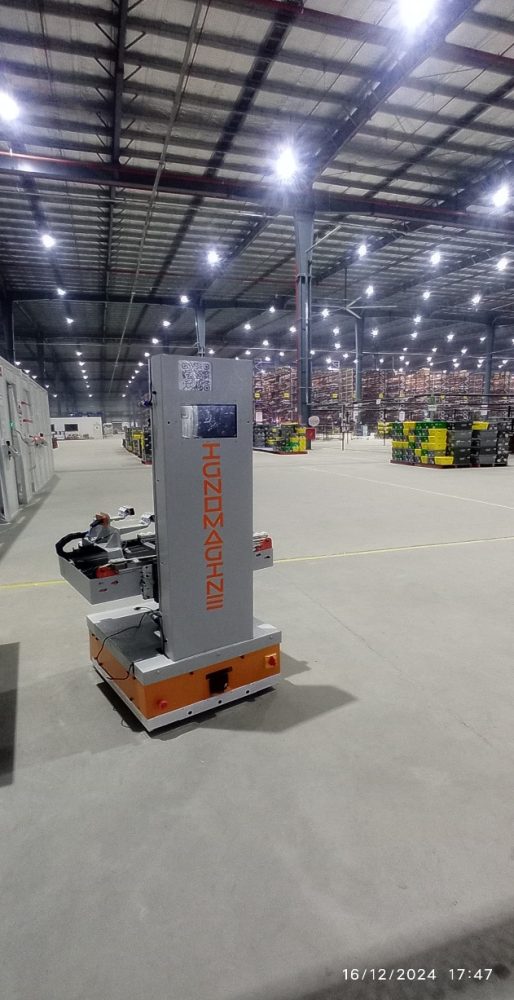
Photo of Enlightened Machine at client site
Our flagship innovation is the Enlightened Machine — Autonomous Mobile Robot (AMR) with Automated Storage & Retrieval System (ASRS), designed for Indian industrial conditions. These robots are not just transporters; they automate complex material handling tasks, carry heavy loads, climb vertical storage racks, detect quality issues, and can integrate seamlessly with legacy systems without requiring a single change in the existing infrastructure.
We also built NavAI, a fleet management system and intelligent dashboard that brings visibility, task configuration, predictive maintenance, and analytics onto one unified platform. It’s our answer to the fragmented automation market — and it’s built specifically with India in mind.
Implementation: Getting Our Hands Dirty
We didn’t start with fancy labs or investors. We started in small workshops, with basic tools, experimenting, failing, and trying again. But our engineering DNA, strong product development discipline, and real-world problem-solving approach helped us keep going.
We work closely with the factories we aim to serve. We walk their floors, study their constraints, and customize our systems — because we understand there’s no “one-size-fits-all” in Indian manufacturing.
Recognition & Where We Stand Today
Today, Ignomagine is recognized among the top 3 most impactful start-ups by Mahindra Logistics, after working directly with them to address real warehousing challenges. We’ve been part of several innovation networks, featured in exhibitions, and have received accolades from TiE Global, Slingshot Singapore, and others for solving the most difficult part of automation: robotizing existing traditional factories without changing their setup.
What Keeps Me Going
What drives me every day is the belief that we are building something India truly needs. That every time our robots move a load or navigate a narrow aisle, we are taking a small but important step towards India’s ambition of becoming a $30 trillion economy by 2047.
Yes, it’s hard. Yes, there are days of doubt. But the satisfaction of seeing something you built, from scratch, solving real-world problems — that feeling is unmatched.
I may have left behind a corporate title. But what I gained is purpose, and a company that has its heart where its technology is — on the shop floors of India, empowering the backbone of our economy.
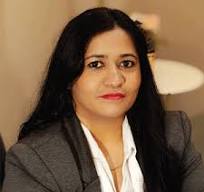
Dr. Seema Singh, Founder, DostBin Solutions
Dr. Seema Singh is an inspiring example of a woman entrepreneur who has made a significant impact in the waste management sector. She is the founder of DostBin Solutions, a start-up incubated at MINRO, IIIT-B. Here’s an overview of her journey:
Early Life and Education
Dr. Seema Singh comes from a modest background and was raised in a family that valued education. She pursued her Ph.D. in Electronics Engineering and have 2 patents in the field of waste management.
The Idea Behind DostBin Solutions
During her first-hand experience with home composting, Dr. Singh realized that India’s waste management systems were inadequate, leading to environmental pollution and health issues. She identified an opportunity to develop innovative solutions for waste management, particularly focusing on organic waste.
With 2+ decades of experience in academics, research and administration, she delved into the world of Startups and Entrepreneurship when she was promoted to the position of Dean (Innovation and Entrepreneurship) at BMS Institute of Technology and Management. With her interest in innovation and making Engineering and technology solve problems of society, she began her journey for product development which can make composting easy and adoptable by masses. With her first prototype gaining attention and awards from various platforms, it became evident that society is looking forward to such innovation and solution.
Further gaining momentum and grants from Startup Karnataka and IIT Madras, their product was launched by Honourable minister, Shri Priyank Kharge in prestigious Bangalore tech summit in 2025. With confidence of their early customers across India, their Startup gained traction from GEM portal, SELCO foundation and Army base.
However, her journey was not a bed of roses. Hardware product development in India, especially when it involves components from various fields of engineering and the need to manage unit economics, is undoubtedly challenging.
Despite several hurdles, Dr. Singh persevered and worked tirelessly to develop DostBin Solutions. Her determination and innovative approach led to:
- The development of smart composting bins that make waste management easy and efficient
- Recognition and awards for her innovative solutions and entrepreneurial spirit
- Selection among the Top 10 Waste Management Startups by Industry Outlook
- Nomination by NTLF (NASSCOM Technology Leadership Forum) for product demonstration at the Grand Hyatt, Mumbai
- Nomination by K-tech Karnataka for product demonstration at Startup Maha Kumbh at Bharat Mandapam, Delhi
Impact and Legacy
Dr. Seema Singh’s journey as a woman entrepreneur has inspired many. Through her initiatives, she has:
- Transformed waste management practices in India, significantly reducing environmental pollution and health risks
- Enabled women and marginalized communities to access sustainable livelihood opportunities
- Advanced the circular economy in India by promoting sustainable consumption and production practices
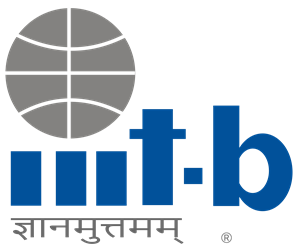

 ಮಾರ್ಚ್ ೮ ರಂದು ವಿಶ್ವದಾದ್ಯಂತ ಮಹಿಳಾ ದಿನಾಚರಣೆಯನ್ನು ಆಚರಿಸ್ತಾರೆ. ಆದರೆ ಮಹಿಳೆಗೊಂದು ದಿನ ಬೇಕಾ? ಪ್ರತಿದಿನ ಆಕೆಯ ಆಚರಣೆ ಯಾಕೆ ಆಗಬಾರದು? ಈ ಪ್ರಶ್ನೆಯೊಂದಿಗೆ ಈ ಲೇಖನ ಆರಂಭಿಸೋಣ.
ಮಾರ್ಚ್ ೮ ರಂದು ವಿಶ್ವದಾದ್ಯಂತ ಮಹಿಳಾ ದಿನಾಚರಣೆಯನ್ನು ಆಚರಿಸ್ತಾರೆ. ಆದರೆ ಮಹಿಳೆಗೊಂದು ದಿನ ಬೇಕಾ? ಪ್ರತಿದಿನ ಆಕೆಯ ಆಚರಣೆ ಯಾಕೆ ಆಗಬಾರದು? ಈ ಪ್ರಶ್ನೆಯೊಂದಿಗೆ ಈ ಲೇಖನ ಆರಂಭಿಸೋಣ.